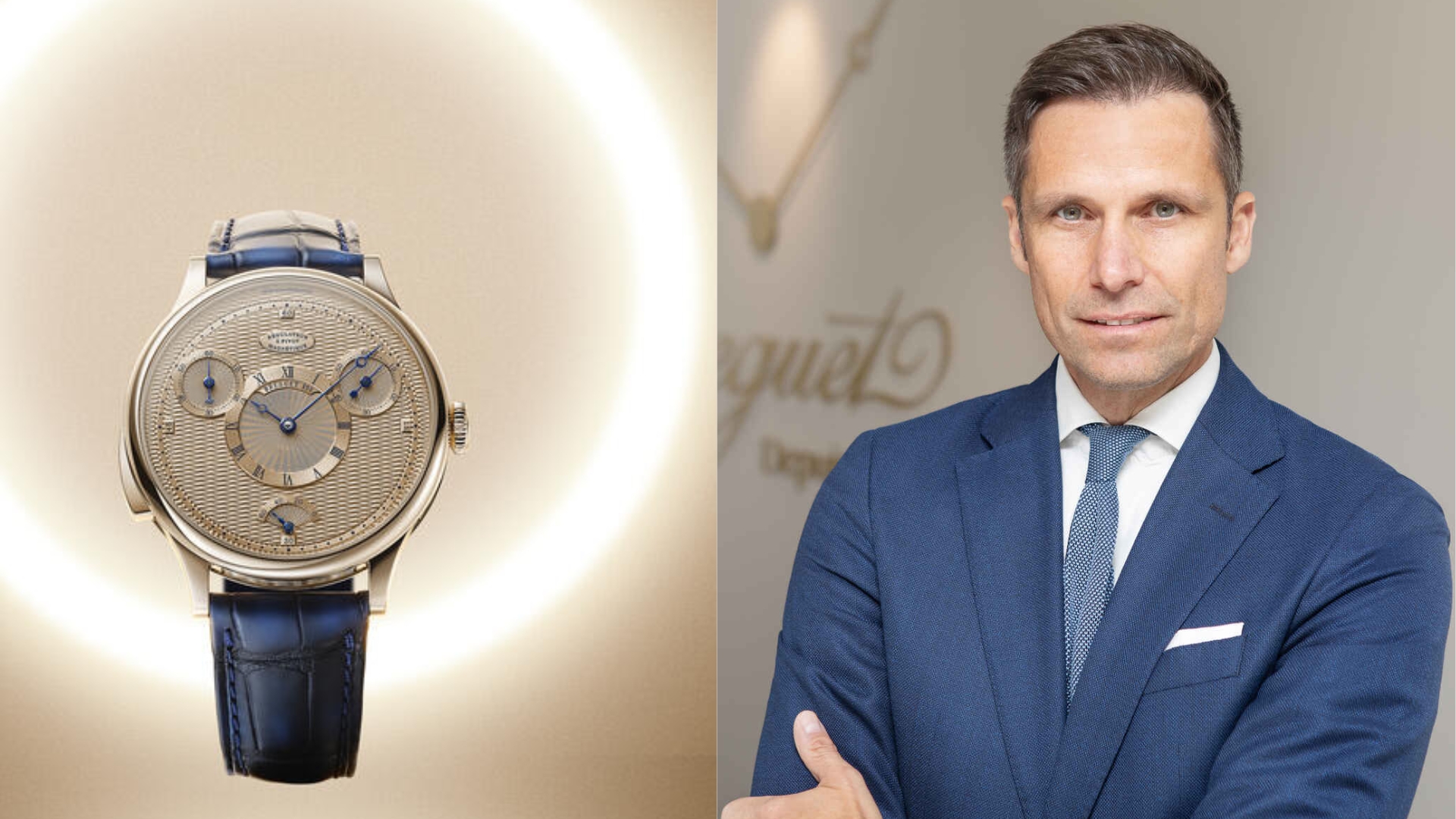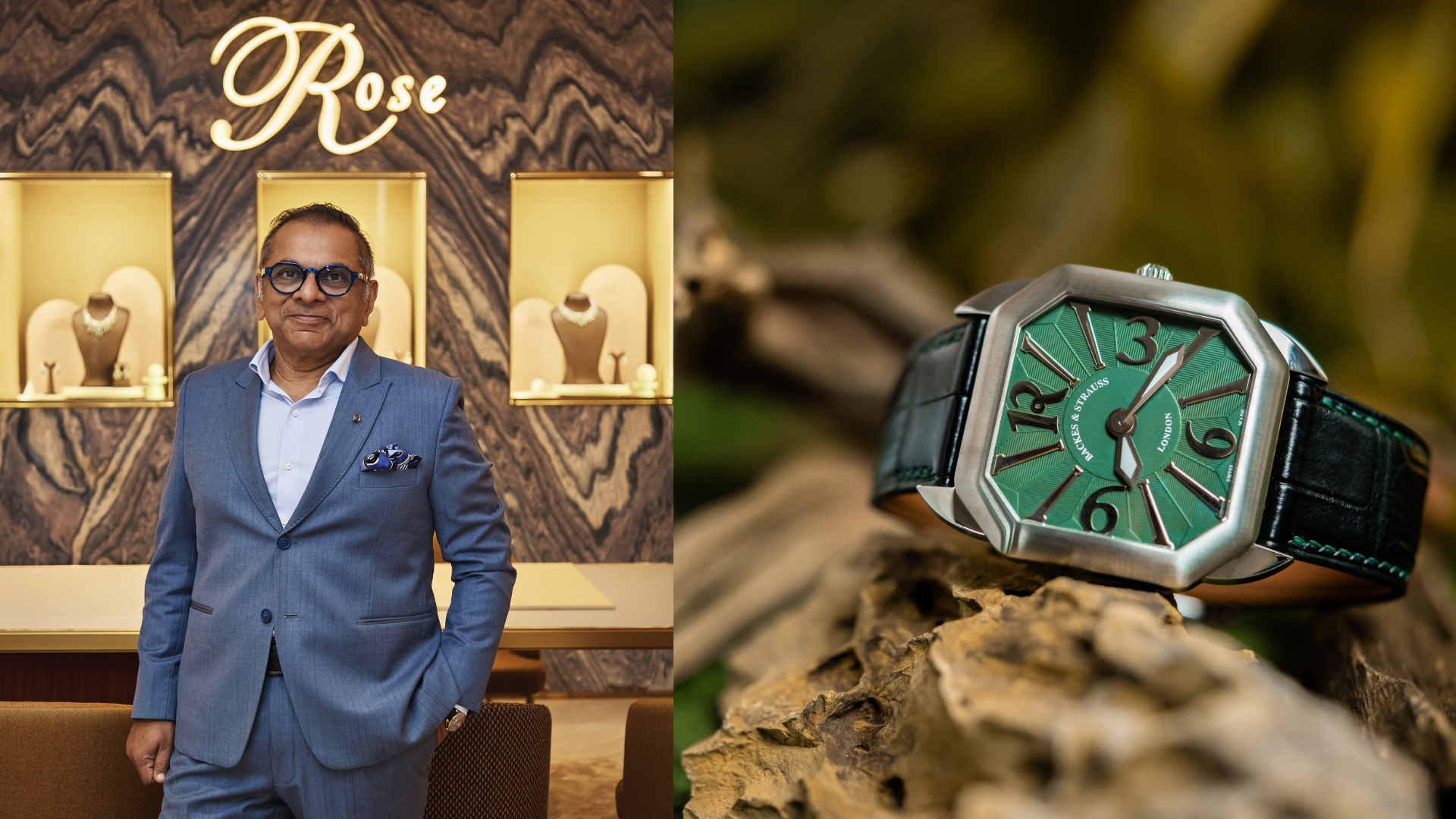We Believe in Investing in Research and Making Watches that are Practical: Jan Edöcs


Doxa has established itself as an industry trailblazer with over a century of expertise and innovation in the world of diver’s watches. Doxa created quite a stir this year with the debut of its highly sought-after Army Limited Edition, which was crafted from a blend of cutting-edge ceramic and titanium. In 2022, it was nominated for the Grand Prix d'Horlogerie de Genève (GPHG) diver's category. In conversation with GMT India, Doxa's CEO Jan Edöcs highlighted the rich history of the watch and the company's aspirations. Excerpts from the interview:

GMT India: Congratulations on being nominated. How does it feel? Can you talk a little bit about the latest watch?
Jan Edöcs (JE): We're proud that we ensured the push and went through a revival two-and-a-half years ago. And this is our fifth nomination at GPHG. We're super happy to be in our house category — diver’s. This year is significant because it's not only the watch by itself or the ceramic materials, but it is also the fact that the product is strongly linked to the past. And we've been waiting 50 years to launch this!
In 1968, the Swiss Army was secretly training other countries' armed forces. They didn't know that the Divers existed and Doxa was the timekeeper for the Swiss Army Divers. It was only last November that the Minister of Defence disclosed this.
If we go back a little, there were two watches — the orange dial was for the divers. The watch at that time was oxidated. It was not big since it was black and disappeared fast. It soon became white. To honour this, we made it in ceramic in order to return to the roots with love.
Ceramics did not exist in the 60s. We wanted to combine the past with the present and the future. And that is why we have chosen modern materials. Just combining them with the product, from our point of view, was outstanding, and the feedback was amazing. We made 100 pieces and we were sold out within one day.

GMT India: That's fantastic! So, Doxa has a rich history with unique and bold designs — the colour orange was revolutionary at that time. Other companies have also been experimenting with colours in recent years. How do you plan to distinguish yourself in the next 5-10 years?
JE: First of all, Doxa’s positioning is clear in the market. We don't try to pitch an idea to a pilot or to, say, a car driver. Our message is clear — we like water. When you go back to 1968, research shows tried and tested methods in Lake Michigan. You see a difference only after 30 metres with a diver's watch. And orange was the colour, so this story was crucial for the brand. Other products may come and go, but colours have been holding a special significance for us over the past 50 years or so. And the colours are not just about fashion, there's functionality too.
To distinguish ourselves, we remain focused. It is really simple and related to materials research, just like last year when our research dealt with carbon. But, more importantly, within the last two-and-a-half years, Doxa took the risk of becoming a “museum brand” and took up the challenge of bringing it to the next generation.
GMT India: What about the online business model?
JE: Doxa was one of the first to run an online business in 2001. So this is a business that we wholly understand, from company profiling to gauging where our end consumers are, especially where our new end consumers buy products from. About 60% of Doxa consumers are first-time buyers. We now went down the cycleway and opened up to one retailer. So, other brands go online, and we go offline (as well), being very exclusive. Diving or diver’s watches are very fashionable now, but again, you need to add credibility.
By the end of the 60s, everyone was running after the moon. To us, oceans are such a mystery. It's not a question about whether we follow others now — our colours were always there and functionality for us is premium.
GMT India: How does Doxa plan to continue its R&D efforts? What impact do you believe Doxa's focus on ethical standards for materials has on the company's creativity and growth? Since it's limited to the sea world.
JE: The challenges are bigger and there's still a lot to be done. But we don't proclaim this from rooftops. The watch industry must be very careful about one thing — the product still needs to make sense. Now everyone is making materials. In my opinion, some products don't make sense anymore, and on top of that, there is the imperative to sell them. Don’t do it just because you have plastic, which is recycled in a particular way. That's the wrong way to take on these issues.
Now diver’s watches go with plastic functionality, but you can go beyond this and think about CO2 emissions, the way you produce your watches and whether you can use solar energy. Those are the real deals, you invest in them, but it will take time. And it's not just a matter of scrap for your plastic, which, most of the time, is not even up to 100%. We believe in Investing in research and making watches that are practical.
Image Credits: Doxa










.jpg)





%20(4).jpg)
